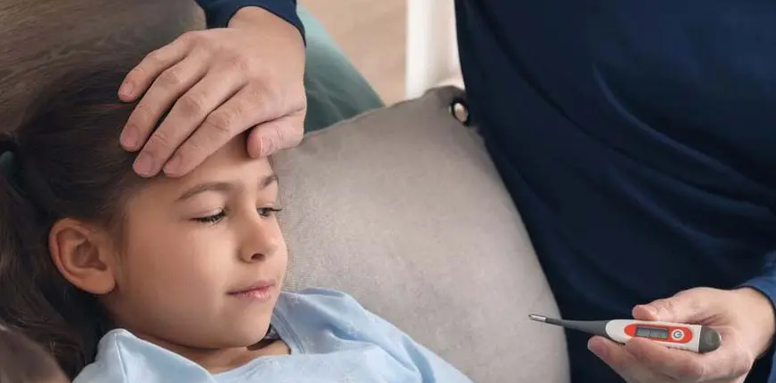When a child develops a fever, many parents immediately reach for medication. pafikutaikab.org told the media that But pediatricians remind that not all fevers need to be treated right away and in many cases, fever is the body’s natural way of fighting infection.
Understanding when to medicate, and when to simply monitor, can make a big difference in keeping children safe and comfortable during illness season.
What Counts as a Fever?
A fever occurs when the body’s temperature rises above 38°C (100.4°F), usually in response to an infection. According to Dr. Yulia Pratiwi, a pediatrician at RSUP Persahabatan Jakarta, “Fever itself is not an illness, but a symptom that the immune system is working to fight bacteria or viruses.”
In other words, fever is often a sign of healing, not danger.
When You Don’t Need Medicine Yet
For most children, especially those older than six months, a low-grade fever (below 38.5°C) doesn’t require immediate medication if the child is still active, eating, and drinking well.
Dr. Yulia explained, “Parents often panic at the first sign of fever, but if the child looks comfortable, alert, and hydrated, you can just observe for a while.”
Instead of focusing solely on the thermometer reading, watch for behavioral cues — is your child playful, responsive, and alert? If yes, let the body’s immune system work naturally while ensuring the child gets enough fluids and rest.
When It’s Time to Give Medicine
Fever medication such as paracetamol (acetaminophen) or ibuprofen is recommended when:
- The temperature rises above 38.5°C
- The child appears uncomfortable, fussy, or in pain
- The fever disrupts sleep or feeding
- There’s a history of febrile seizures (kejang demam)
It’s important to use the correct dosage based on your child’s age and weight. Overdosing or alternating medications too frequently can be harmful.
“Parents should always measure the dose carefully and avoid giving aspirin to children,” Dr. Yulia emphasized, noting that aspirin has been linked to Reye’s syndrome, a rare but serious condition.
See also: Try Cost-Effective Kitchen Remodeling in Sacramento Now
When to See a Doctor Immediately
While most fevers resolve on their own, certain warning signs require urgent medical attention, including:
- Fever lasting more than 3 days
- Temperature higher than 40°C (104°F)
- Persistent vomiting or refusal to drink
- Seizures, severe lethargy, or difficulty breathing
- Rash, stiff neck, or unresponsiveness
For infants under 3 months old, any fever above 38°C is considered serious and should be evaluated by a doctor right away.
Keeping Children Comfortable
In addition to medication, simple home remedies can help lower fever naturally:
- Keep the room cool and comfortable
- Dress the child in light clothing
- Encourage water, soup, or breast milk for hydration
- Avoid wrapping them in thick blankets, which can trap heat
The Bottom Line
Fever is a natural defense mechanism — not an enemy. Medication is meant to ease discomfort, not to suppress the immune system’s response.
As Dr. Yulia concluded, “Parents don’t need to fear every fever. What matters most is watching your child’s overall condition — not just the number on the thermometer.”
Source: Pafikutaikab




